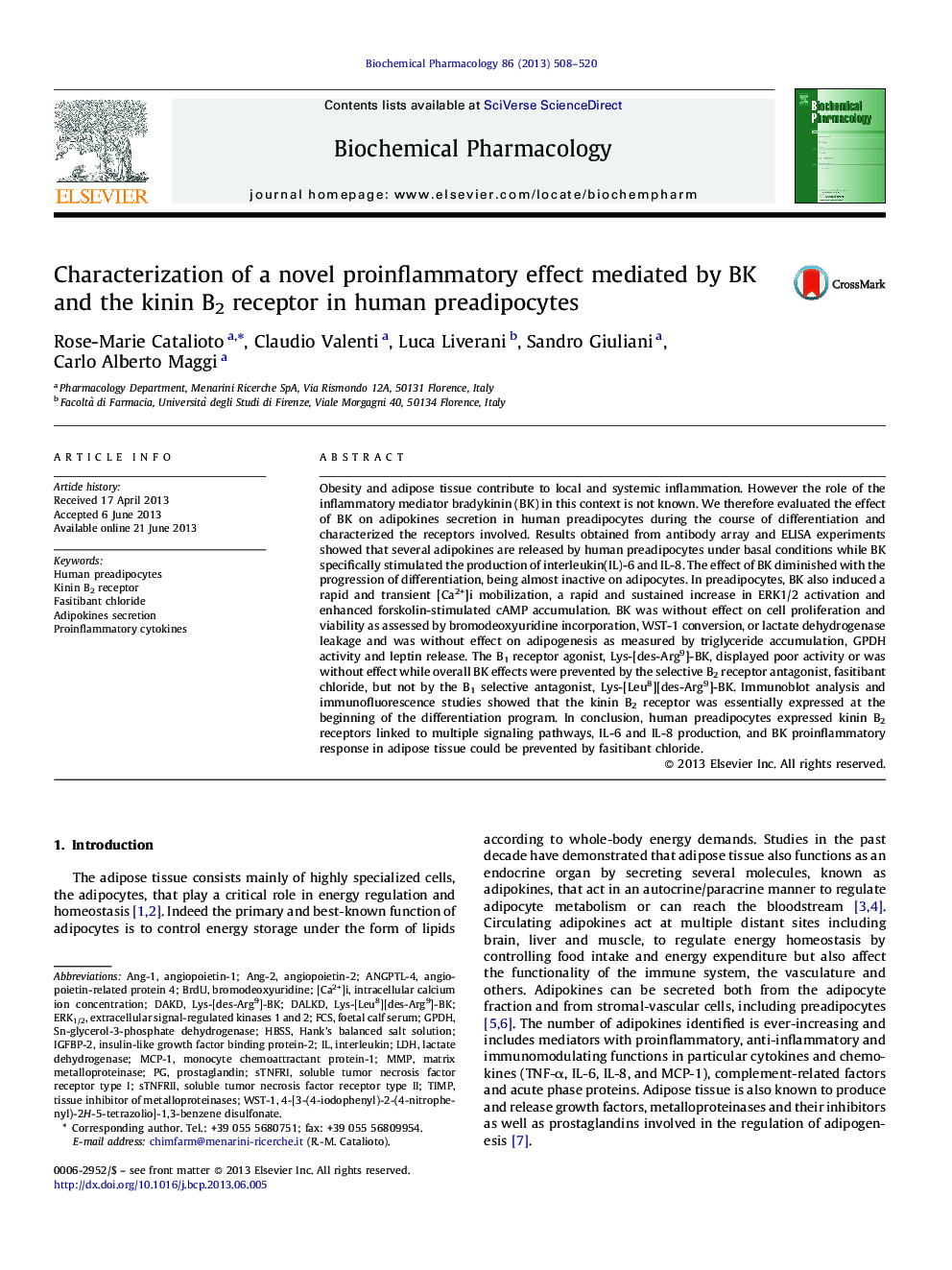| Article ID | Journal | Published Year | Pages | File Type |
|---|---|---|---|---|
| 2512694 | Biochemical Pharmacology | 2013 | 13 Pages |
Obesity and adipose tissue contribute to local and systemic inflammation. However the role of the inflammatory mediator bradykinin (BK) in this context is not known. We therefore evaluated the effect of BK on adipokines secretion in human preadipocytes during the course of differentiation and characterized the receptors involved. Results obtained from antibody array and ELISA experiments showed that several adipokines are released by human preadipocytes under basal conditions while BK specifically stimulated the production of interleukin(IL)-6 and IL-8. The effect of BK diminished with the progression of differentiation, being almost inactive on adipocytes. In preadipocytes, BK also induced a rapid and transient [Ca2+]i mobilization, a rapid and sustained increase in ERK1/2 activation and enhanced forskolin-stimulated cAMP accumulation. BK was without effect on cell proliferation and viability as assessed by bromodeoxyuridine incorporation, WST-1 conversion, or lactate dehydrogenase leakage and was without effect on adipogenesis as measured by triglyceride accumulation, GPDH activity and leptin release. The B1 receptor agonist, Lys-[des-Arg9]-BK, displayed poor activity or was without effect while overall BK effects were prevented by the selective B2 receptor antagonist, fasitibant chloride, but not by the B1 selective antagonist, Lys-[Leu8][des-Arg9]-BK. Immunoblot analysis and immunofluorescence studies showed that the kinin B2 receptor was essentially expressed at the beginning of the differentiation program. In conclusion, human preadipocytes expressed kinin B2 receptors linked to multiple signaling pathways, IL-6 and IL-8 production, and BK proinflammatory response in adipose tissue could be prevented by fasitibant chloride.
Graphical abstractFigure optionsDownload full-size imageDownload as PowerPoint slide
